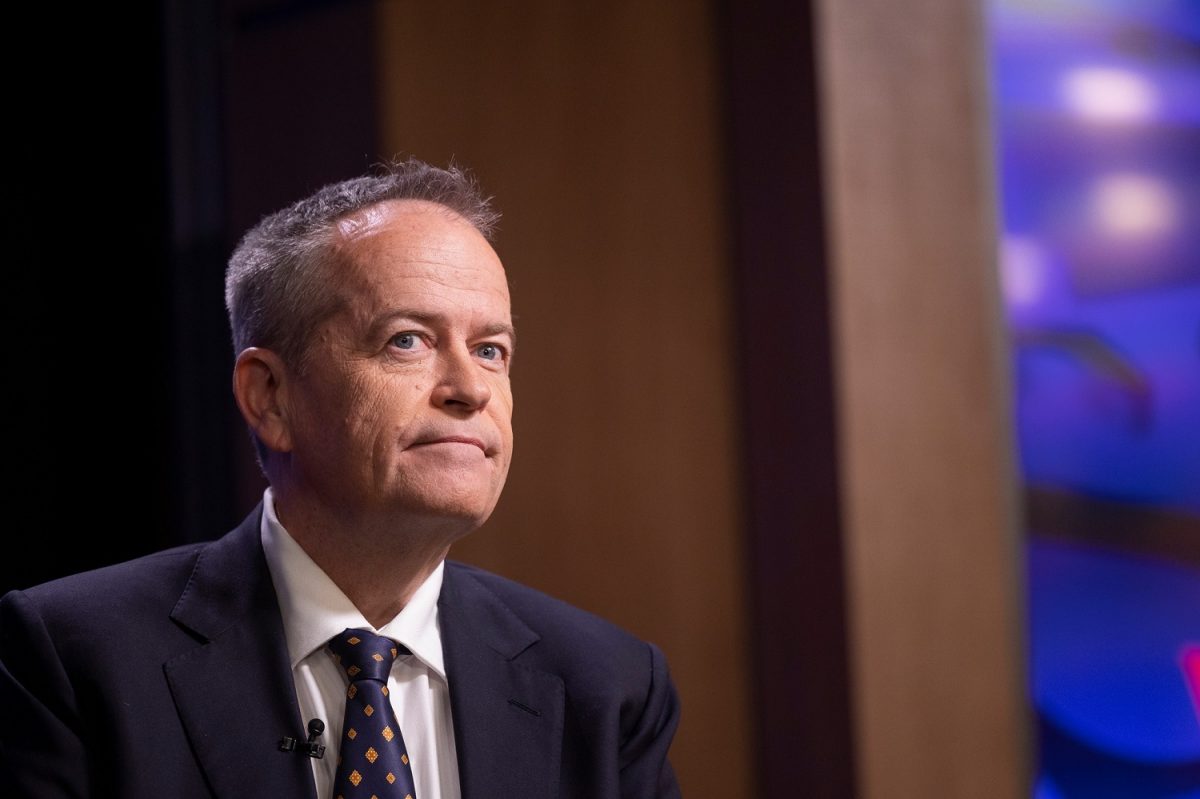
Bill Shorten said the changes were designed to guarantee the scheme’s long-term future. Photo: National Press Club.
NDIS Minister Bill Shorten isn’t wearing criticism over the Federal Government’s move to slash the program’s expansion by $14 billion over four years, saying the reforms do not amount to a cut to the scheme’s funding.
Parliament passed legislation last week to change the way National Disability Insurance Scheme participants receive payments and plan budgets and give more power to the agency’s head to prevent top-up payments.
The bill underwent almost 100 amendments and was finally passed after the states and territories struck a deal with Canberra over changes to the $35 billion scheme they co-govern.
On the plus side for the states, the changes secured include faster timeframes for approving new rules and an easier voting process for making further changes that impact people with severe disability.
A new approach to dispute resolution was also agreed.
Passage of the bill allows the government to implement changes, many of which were still in consultation until Sunday (25 August), that will be enforced once the law comes into effect in a matter of weeks.
However, while Labor secured enough votes from the Coalition to pass the bill, the Greens labelled it a government betrayal.
Greens Senator Jordon Steele-John described the bill’s passing as a “moment of pain, fear and fury” and “the greatest betrayal of our community ever perpetrated by the government”.
He was later joined by disability advocates who claimed the changes stripped away the rights of people with disabilities to negotiate with the government to receive personalised care.
ACT disability bodies criticised the cuts to support from the NDIS, which will also introduce debt recovery powers to the agency and compulsory assessments for participants.
Chief executive of Advocacy for Inclusion Craig Wallace said the changes are far-reaching and unfair.
“For instance, there are sweeping and troubling exclusions of health, support and mental health services,” he said.
“The list excludes menstrual products plus generators and batteries people use to charge their wheelchairs or keep ventilators going. Excluding general appliances like smart white goods will push people into costly alternatives.
“We’ll see all kinds of weird outcomes from this in the hands of bureaucrats like people being pushed towards highly specialised equipment to shower instead of a $20 stool that does the same job or paying a person to clean a house instead of buying a robotic vacuum that could help someone do it independently.
“Instead of removing choice from individuals and handing control to governments, we advocated through the NDIS Review for sustained attention to provider quality, fraud and price gouging while helping people become informed and discerning consumers.”
However, on Sunday of ABC’s Insiders program, Mr Shorten said the changes were designed to guarantee the scheme’s long-term future.
He suggested Australians could be confident the funding reductions would not be to the detriment of the needs of people with disabilities, but in fact, there would be more support added to the scheme’s “menu”.
“There are more people who will be on the scheme this week than there were last week,” the Minister said.
“We will invest more in people with disability on the scheme this week than last week.
“What we will see with this legislation is returning the scheme to its original intent.”
When asked last week if he felt he had betrayed advocacy groups by implementing changes they had opposed during the NDIS Review, Mr Shorten said he couldn’t please everyone.
“In a perfect world, everyone would love you,” he said.
“I’ve learned a long time ago, that perfect world? I’ve yet to find it.”
The NDIS has been in trouble for some years, with the current Labor and previous Coalition governments bemoaning the continued blowout of the scheme’s costs.
It has also been plagued with fraud and non-compliance.
Earlier this year, the government launched a task force to investigate suspected unfair pricing practices in the scheme.
Chaired by the Australian Consumer and Competition Commission, the task force aims to tackle the illegal overcharging of NDIS participants and investigate and clamp down on misleading conduct, unfair contract terms and anti-competitive agreements.
Original Article published by Chris Johnson on Riotact.







